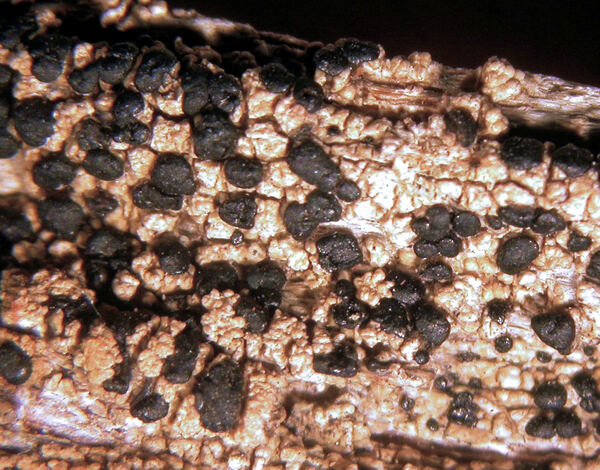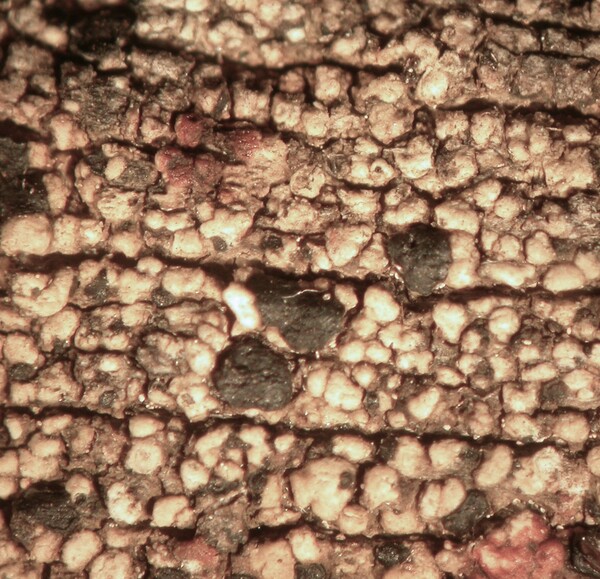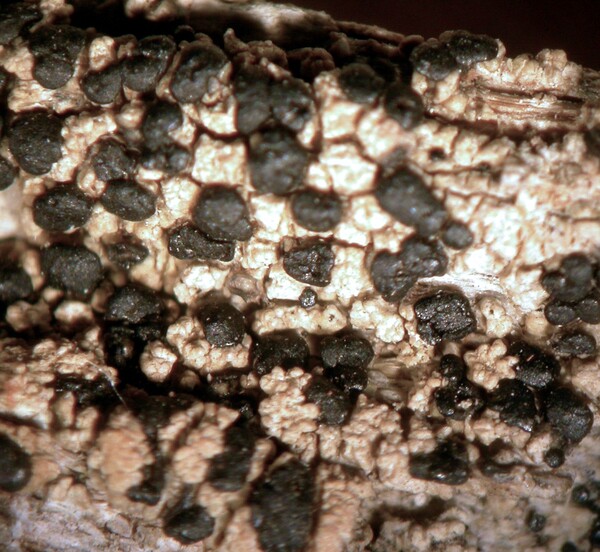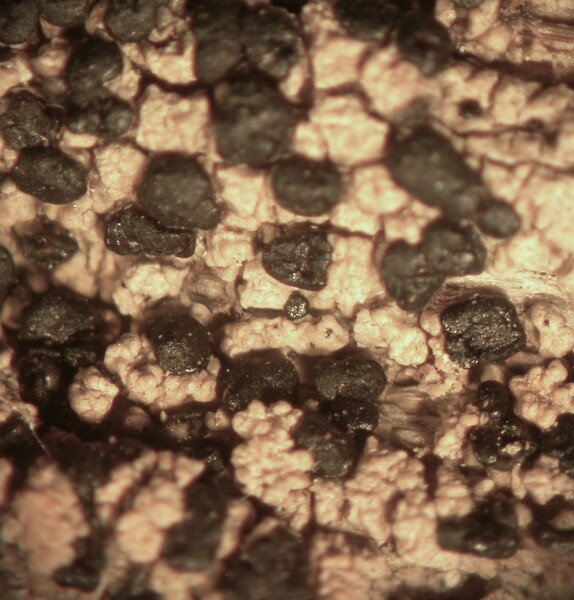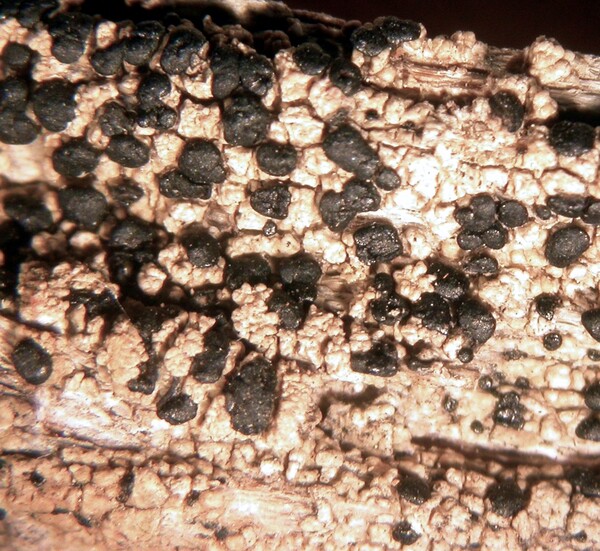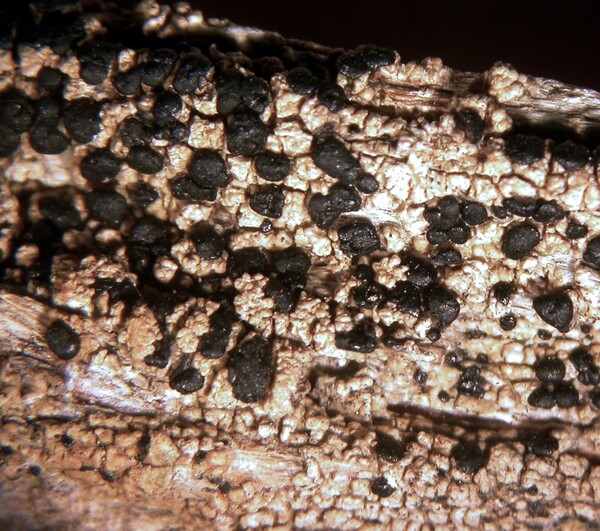Lecidella xylophila (Th. Fr.) Knoph & Leuckert
Bibl. Lichenol., 68: 131, 1997. Basionym: Lecidea xylophila Th. Fr. in Falck - Östra Blek. Lafflora: 16, 1874.
Synonyms:
Distribution: N - TAA (Nimis & al. 2015, Nascimbene & al. 2022). C - Abr.
Description: Thallus crustose, grey-white, often thin and poorly evident, continuous, faintly rimose or areolate, Medulla white, I-. Apothecia lecideine, black, epruinose, sessile and constricted at base, 0.4-0.8 mm across, with a flat disc and a thick, persistent proper margin. Epithecium blue-green to green-black, N+ purple; hymenium colourless; paraphyses easily made free in K, mostly simple, slightly thickened at apex; hypothecium colourless. Asci 8-spored, clavate, with an intensely K/I+ blue tholus penetrated by a faintly amyloid, broadly cylindrical axial mass, and a poorly developed ocular chamber, the wall K/I-, surrounded by a K/I+ blue outer layer, approaching the Lecanora-type. Ascospores 1-celled, hyaline, broadly ellipsoid, 9-12 x 4-6 µm. Photobiont chlorococcoid. Spot tests: thallus K+ yellowish, C-, KC-, P-. Chemistry: thallus with atranorin.
Note: on the whole, a very poorly known species growing on lignum near treeline. It is included in the Italian red list of epiphytic lichens as “Critically Endangered” (Nascimbene & al. 2013c).
Growth form: Crustose
Substrata: lignum
Photobiont: green algae other than Trentepohlia
Reproductive strategy: mainly sexual
Poorly known taxon in need of further study
Commonnes-rarity: (info)
Alpine belt: absent
Subalpine belt: very rare
Oromediterranean belt: absent
Montane belt: extremely rare
Submediterranean belt: absent
Padanian area: absent
Humid submediterranean belt: absent
Humid mediterranean belt: absent
Dry mediterranean belt: absent
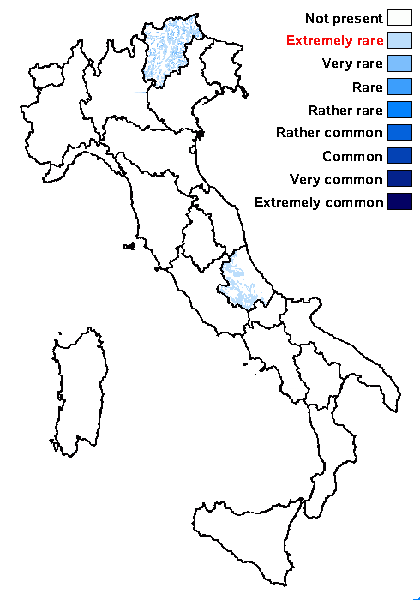
Predictive model
Herbarium samples
Growth form: Crustose
Substrata: lignum
Photobiont: green algae other than Trentepohlia
Reproductive strategy: mainly sexual
Poorly known taxon in need of further study
Commonnes-rarity: (info)
Alpine belt: absent
Subalpine belt: very rare
Oromediterranean belt: absent
Montane belt: extremely rare
Submediterranean belt: absent
Padanian area: absent
Humid submediterranean belt: absent
Humid mediterranean belt: absent
Dry mediterranean belt: absent

Predictive model
| Herbarium samples |
 INDEX FUNGORUM
INDEX FUNGORUM
 GBIF
GBIF
 DOLICHENS
DOLICHENS
